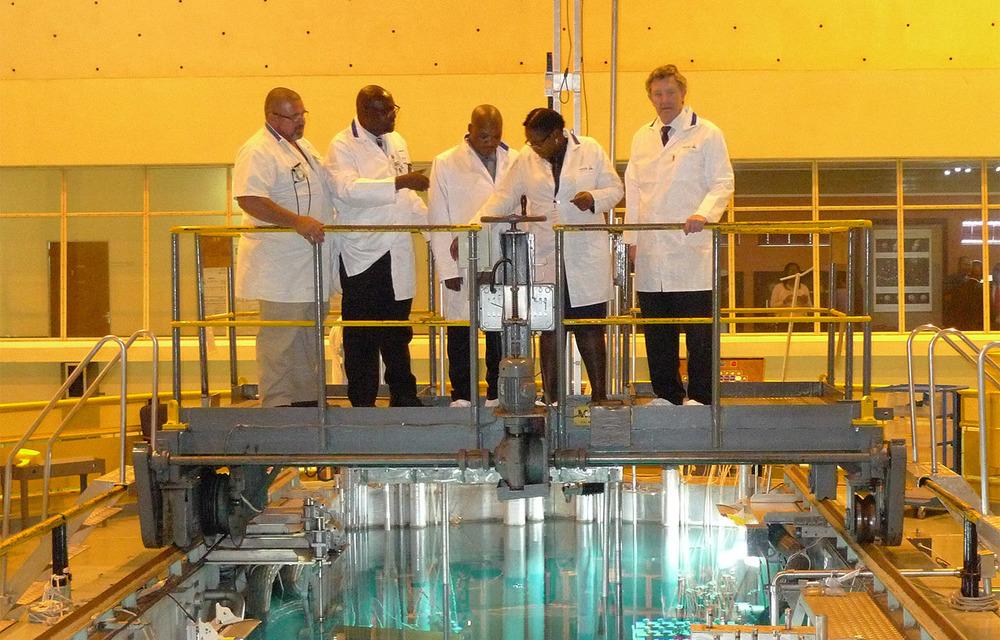Explore Our Bill Payment Services:

- Salary And Allowance
- Engineers Salary
- South Africa
Salary And Allowance Structure For Environmental Engineers In South Africa
Environmental engineering is at the heart of South Africa’s journey toward sustainability. From waste management and water treatment to climate resilience and environmental impact assessments, environmental engineers are playing an increasingly vital role. Yet, beyond the passion and purpose behind their work, one important question lingers: what is the financial outlook for professionals in this field?
This comprehensive article explores the salary and allowance structure of environmental engineers in South Africa in 2025. We’ll break down average pay across experience levels, the influence of education, regional salary differences, additional benefits, employer types, and strategies for maximizing your earnings as an environmental engineer.
National Average Salaries: Where Do Environmental Engineers Stand?
When assessing the salary structure of environmental engineers in South Africa, one immediately sees a range of figures depending on the source of data, industry, and employer size. Although some sources report anomalies on the lower end, the consensus is that environmental engineers generally earn between ZAR 340,000 and ZAR 390,000 per year.
To put this in perspective, that equates to an average monthly income of ZAR 28,000 to ZAR 32,000, though starting salaries for graduates can be much lower.
Environmental engineers are positioned in the middle to upper-middle range of South Africa’s engineering sector. While they may not always match the top salaries of mining or petroleum engineers, they enjoy stable and growing career prospects thanks to the rising demand for sustainability-driven projects.
Salaries by Experience: The Climb Up the Ladder
One of the most important factors influencing salary growth in environmental engineering is experience. As in many professions, the difference between a fresh graduate and a seasoned veteran is vast.
Here’s a general breakdown of what professionals can expect at different career stages:
-
0–2 years of experience: Approx. ZAR 16,200 per month (about ZAR 200,000 annually). At this level, engineers are still building their skills and may be placed in junior or support roles.
-
2–5 years: Salaries rise by around a third, reaching ZAR 21,600 per month (roughly ZAR 260,000 per year). At this point, engineers may take on more independent responsibilities.
-
5–10 years: Significant growth occurs, with average salaries climbing to ZAR 31,900 per month (around ZAR 380,000 annually). Professionals here often hold mid-level project roles.
-
10–15 years: Engineers earn around ZAR 38,900 per month (close to ZAR 470,000 annually). Many reach senior engineer or management positions.
-
15–20 years: Salaries rise modestly to about ZAR 42,400 per month (just above ZAR 500,000 annually). These professionals often act as senior consultants or team leads.
-
20+ years: At the top of the ladder, salaries peak near ZAR 45,900 per month (roughly ZAR 550,000 annually). Engineers in this category are often directors, department heads, or highly specialized experts.
This shows a steady upward trajectory, especially in the first 15 years, with growth leveling off slightly as experience extends beyond two decades.
Education Matters: Bachelor’s vs. Master’s Degree
Another critical factor in determining salary potential is education. While a bachelor’s degree in environmental engineering (or a related discipline) is the minimum requirement for entering the profession, a master’s degree can significantly enhance earning potential.
-
Bachelor’s degree holders: Earn around ZAR 18,800 per month (about ZAR 225,000 annually).
-
Master’s degree holders: Earn nearly ZAR 36,300 per month (approximately ZAR 435,000 annually).
That’s an impressive 93% increase—almost double the earning potential. Postgraduate education also opens the door to research roles, senior consultancy work, and specialized positions within government agencies and multinational firms.
Regional Variations: The Role of Location
Location also influences salaries in South Africa. Environmental engineers in urban centers typically earn more than those in rural areas, not only because of higher living costs but also due to greater demand for environmental expertise in industrial and infrastructural projects.
-
Cape Town: Engineers here earn an average of ZAR 31,800 per month (~ZAR 381,600 annually). With its focus on renewable energy, water management, and sustainability, Cape Town offers strong opportunities.
-
Johannesburg: Slightly lower, averaging ZAR 29,900 per month (~ZAR 358,800 annually). However, Johannesburg remains attractive due to its industrial projects and corporate headquarters.
Overall, the difference between cities can amount to 5–10%, which is significant when considering total compensation.
Sector & Role-Specific Averages
Not all environmental engineers perform identical roles. Some specialize in health and safety, while others focus on waste management, water quality, or renewable energy. This creates natural salary variations:
-
Environmental Health & Safety (EHS) Engineers: Approx. ZAR 346,000 per year.
-
Environmental Specialists: Around ZAR 414,000 per year, often higher than generalist environmental engineers.
This highlights how specialization can lead to enhanced earnings. Engineers who acquire niche skills—such as climate resilience modeling or geographic information systems (GIS)—tend to command higher salaries.
Summary of Salary Structure
To make the salary landscape clearer, here’s a summarized table:
| Career Stage / Qualification | Monthly Estimate (ZAR) | Annual Estimate (ZAR) |
|---|---|---|
| Entry-level (0–2 years) | ~16,200 | ~200,000 |
| Early-mid career (2–5 years) | ~21,600 | ~260,000 |
| Mid-career (5–10 years) | ~31,900 | ~380,000 |
| Senior (10–15 years) | ~38,900 | ~470,000 |
| Veteran (20+ years) | ~45,900 | ~550,000 |
| Bachelor’s degree entry | ~18,800 | ~225,000 |
| Master’s degree entry | ~36,300 | ~435,000 |
| Cape Town average | ~31,800 | ~380,000 |
| Johannesburg average | ~29,900 | ~360,000 |
| EHS engineer average | — | ~346,000 |
| Environmental Specialist average | — | ~414,000 |
Allowances, Benefits, and Extra Compensation
While base salaries form the core of compensation, allowances and benefits often make up a sizable portion of the total package.
Environmental engineers in South Africa often enjoy:
-
Medical Aid Contributions: Many companies cover healthcare or provide generous subsidies.
-
Retirement Fund Participation: Employers often contribute to pension or provident funds.
-
Transport Allowances: Especially common for engineers traveling to project sites.
-
Professional Development Funding: Financial support for training, workshops, or certifications.
-
Performance Bonuses: Linked to project completion, sustainability outcomes, or company profits.
These allowances can boost overall compensation by 10–20%, making them an essential consideration when evaluating job offers.
Employers & Roles: Who Pays What?
Different employers offer different compensation structures. Environmental engineers in South Africa can work for:
-
Environmental consulting firms: Provide diverse experience and good pay, especially at mid-to-senior levels.
-
Municipal or government agencies: Often offer stability, though pay may be lower than in the private sector.
-
Construction, mining, and industrial companies: Generally higher-paying due to the scale of projects and compliance needs.
-
Renewable energy organizations: Increasingly important employers, with competitive salaries in solar, wind, and water projects.
Broadly speaking:
-
Entry-level roles: ZAR 180,000 – 300,000 annually
-
Mid-level roles (3–7 years): ZAR 360,000 – 600,000 annually
-
Senior roles (8+ years): Well above ZAR 600,000, particularly for leadership positions
Community Insights: Real-World Perspectives
Conversations among South African engineers provide useful context. Many graduates report earning between ZAR 15,000 and ZAR 22,000 gross per month when starting out. The difference often depends on whether the employer is a small private firm or a large multinational corporation.
This reflects how employer size and sector choice can strongly influence earnings—even at the entry level.
Career Strategy: Maximizing Earnings Potential
For environmental engineers aiming to maximize their salary and allowances, several strategies stand out:
-
Invest in Advanced Qualifications
A master’s degree can nearly double your earning potential. Specialized certifications in GIS, sustainability, or climate resilience also enhance competitiveness. -
Target High-Paying Sectors
Consultancy, mining, and renewable energy roles tend to pay higher than government positions. -
Embrace Location Advantages
Urban centers like Cape Town and Johannesburg typically offer better pay, though the higher cost of living must be factored in. -
Negotiate the Full Package
Don’t just focus on base pay—allowances for transport, health, and professional development can significantly improve your net compensation. -
Build a Diverse Skill Set
Engineers with a mix of technical expertise, project management, and environmental compliance skills stand out in the job market.
Final Thoughts
Environmental engineering in South Africa is more than just a career—it’s a profession aligned with the nation’s pursuit of sustainable growth. While starting salaries may appear modest, the growth trajectory is steady and rewarding.
-
Graduates can expect around ZAR 200k annually.
-
Mid-career professionals typically earn ZAR 380k–470k annually.
-
Veteran engineers with over two decades of experience often cross the ZAR 550k mark.
Education, location, employer type, and sector choice all play a pivotal role in shaping earnings. Add in allowances like medical aid, transport, and retirement funds, and total compensation becomes far more attractive.
For aspiring and practicing environmental engineers alike, this landscape presents not just financial stability but also the satisfaction of contributing to South Africa’s sustainable future.









